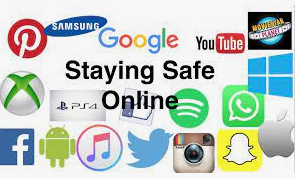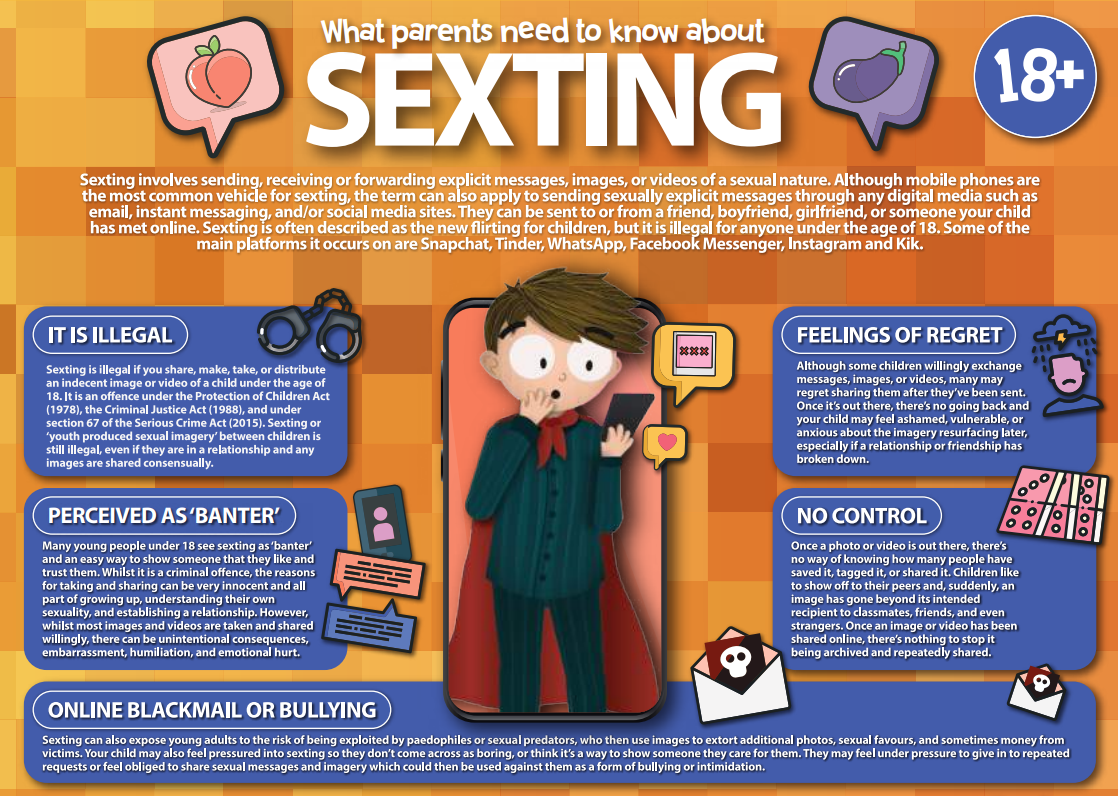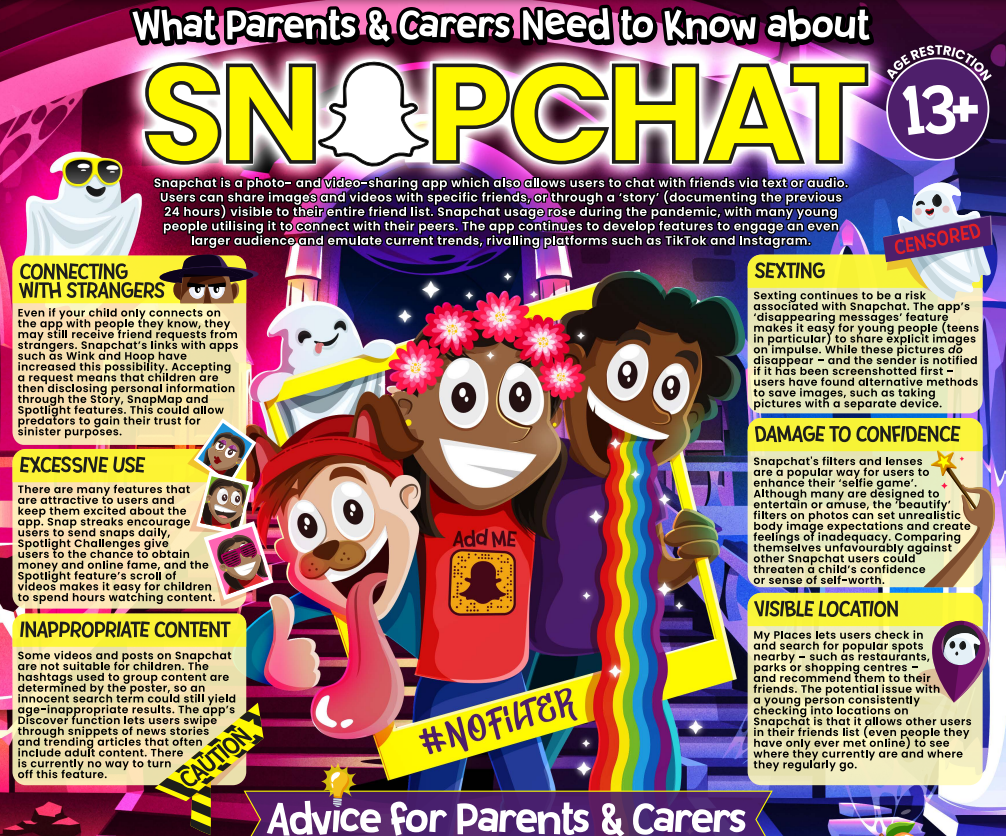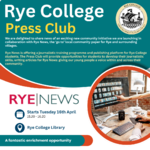E-Safety at Rye College
E-safety and security is an ever changing area of information technology. Rye College believes it is important to provide parents and carers access to resources they might find useful so they can help keep their children safe online. Take the time to view the following resources or contact the us if further advice is required.
E-Safety Policy
A copy of our E-Safety Policy can be found in the policies section of our website.
Reporting an issue
If you have an e-safety issue to report to us, please contact Rye College's Designated Safeguarding Lead, Ms J Carpenter.
Our AUP (Acceptable Use Policy) for students
All students sign an AUP when they start at Rye College, setting out our expectation for their behaviour when using information systems at the academy, of which staying safe online is a major constituent.
Safer Internet Day
Safer Internet Day (SID) is organised by Insafe in February of each year to promote safer and more responsible use of online technology and mobile phones, especially among children and young people across the world.
Latest guides
For advice on the safety tools for all the main social networks, click here.
Information to quickly set up parental controls on all the major platforms, NSPCC and nakedsecurity.sophos.com.
Digital Safety: Staying Safe Online - A general informational guide to internet safety with specific sections on identify theft, social media use, keeping children safe online and internet viruses.
NSPCC Netaware - A site that allows parents to share how age appropriate social media site are and highlights features that could pose a risk for children’s and safety advice on how to combat this.
National Online Safety - This organisation produces free weekly guides to equip school staff, parents and carers with the information they need to understand potential risks of the various different online platforms.
Cyber bulllying advice from BullyingUK - BullyingUK forms part of Family Lives and offers anti-bullying advice and resources to support families and schools.
Some more general guides to the latest technologies, click the help sheet links below.
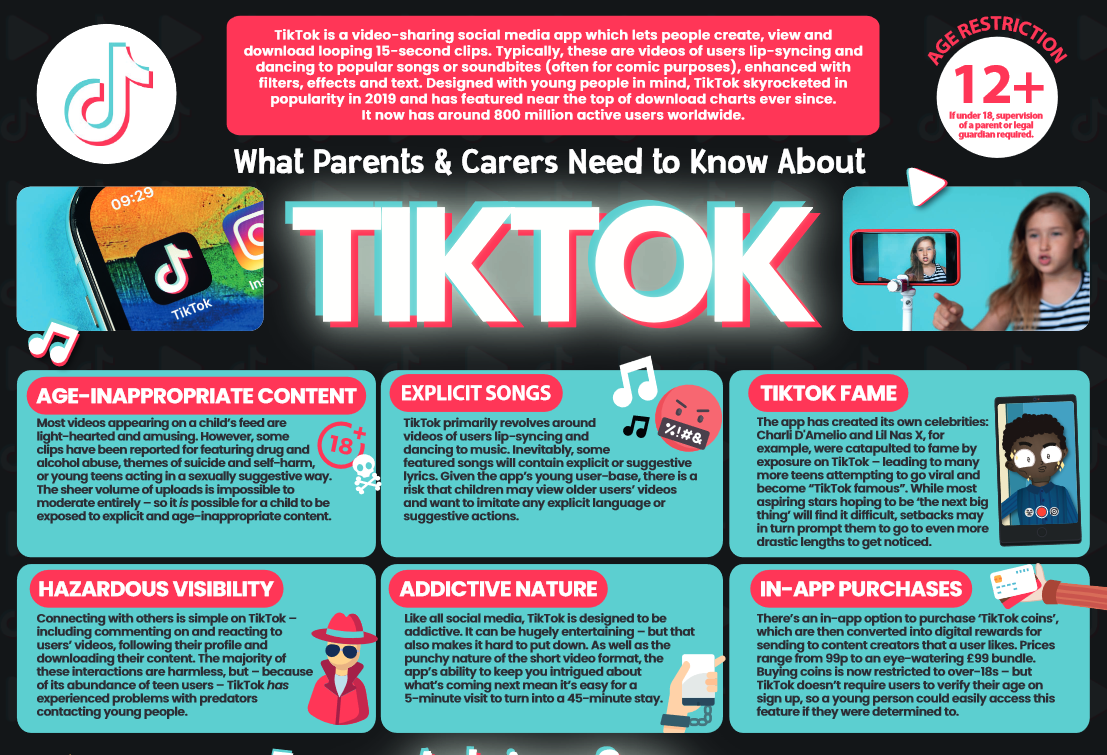
E-Safety - Useful Help Sheets
Social Media - Privacy & Safety Checklists
Sexting
The term ‘sexting’ is used to describe the sending and receiving of sexually explicit photos, messages and video clips, by text, email or posting them on social networking sites. To find out more click here: www.internetmatters.org - this site is excellent for Parents and Carers to learn more about this topic.
Removing Nude Images from the Internet
Childline has launched 'Report Remove' a service that allows children and young people under 18 to report and get removed from the internet a nude image or video of themselves that might have been shared online. The online service includes links to services and information offering emotional and safeguarding support.
Visit the Childline website: Report a nude image online.
How to check the suitability of video games
Gaming is a massive and enjoyable part of most young people’s lives, but it can involve problems via possible exposure to age-inappropriate material, abusive online communication, risky behaviour or hidden costs. You can help keep your child safe by being familiar with the PEGI (Pan European Game Information) system which rates video games according to their content and suitability for different ages. You can access the main PEGI website here including their searchable database of games.
CEOP (Child Exploitation and Online Protection) Videos
Your child may have watched one of CEOP ‘s Thinkuknow films at school; they are a great way to start conversations with them about what can happen online and what they can do about it. The films may also be a good way for you to learn about some of the pressures young people may face, what can go wrong and what you can do about it.
.jpg)
_(1)_(1).jpg)
